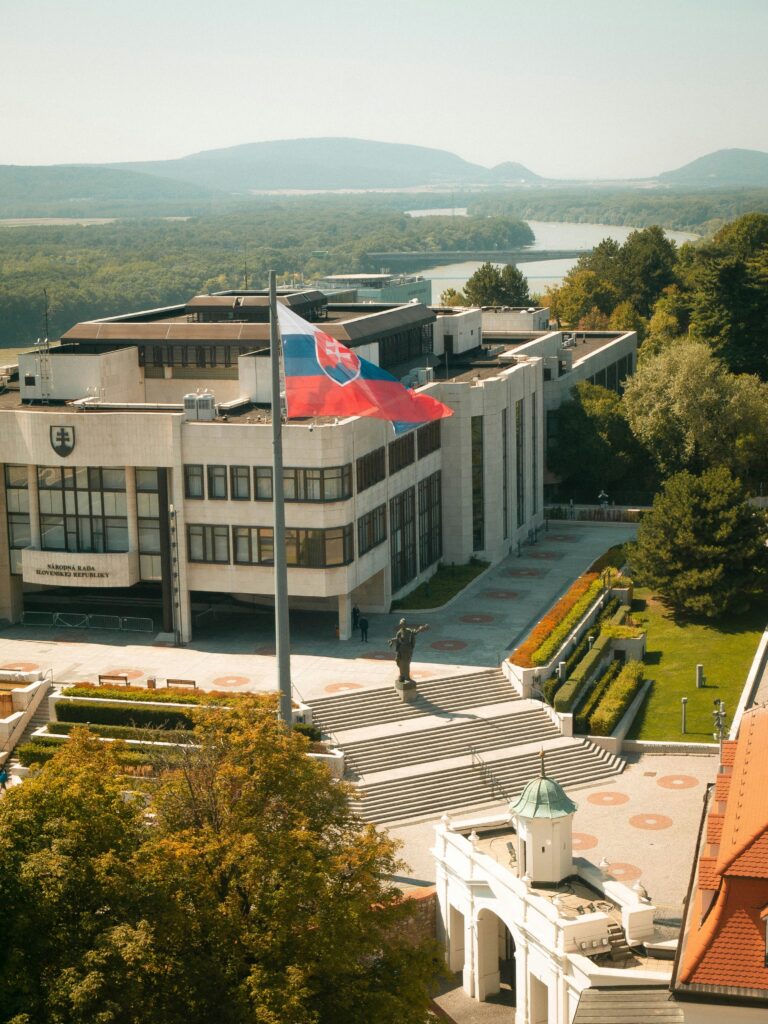Slovakia has appointed Samuel Migaľ as the new minister of investments and regional development, finalizing a government reshuffle designed to secure coalition stability. President Zuzana Čaputová officially swore him into office, marking a strategic move to strengthen Prime Minister Robert Fico’s ruling Smer (Direction) party.
The reshuffle was necessary to resolve a political crisis that threatened the government’s majority in the 150-seat National Council. By restructuring the cabinet, coalition leaders aimed to prevent further fragmentation and reinforce their ability to push through legislative initiatives.
Coalition Partners Concede Ministries to Bolster Smer
To solidify the alliance, the Hlas (Voice) party and the Slovak National Party (SNS) agreed to cede one ministry each to Smer. This restructuring has reshaped the balance of power within the government.
As a result, Smer now controls nine ministries, while Hlas oversees six, and SNS manages two. The government’s stability was previously at risk after four lawmakers left their parliamentary factions, reducing the coalition’s strength. Although these defectors did not join the opposition, they leveraged their positions to negotiate government roles in exchange for their continued support.
Without their backing, the government struggled to advance its legislative agenda, prompting the reshuffle as a critical step to secure necessary votes in parliament.
Expanding Fico’s Influence Amid Political Tensions
The new appointments further consolidate Fico’s influence within the government. Radomír Šalitroš, a former Hlas member who defected, has been appointed state secretary under Migaľ’s leadership. Additionally, Rudolf Huliak has assumed the role of minister of tourism and sports.
The reshuffle also paves the way for a leadership transition in parliament. Migaľ’s predecessor, Richard Raši, stepped down from his ministerial role and is expected to become parliamentary speaker, replacing Peter Pellegrini, who vacated the position following his presidential election victory.
Public Backlash Over Fico’s Policies
Despite these strategic moves, Robert Fico remains a divisive figure in Slovakia. His decision to cut military and financial aid to Ukraine and oppose its NATO membership has fueled controversy. Many Slovaks view his pro-Russia stance as a threat to the country’s future direction.
Public dissatisfaction has led to nationwide protests, with citizens expressing concerns over Slovakia’s geopolitical alignment. Fico’s policies continue to spark debate, underscoring the challenges his government faces in maintaining both domestic and international credibility.


